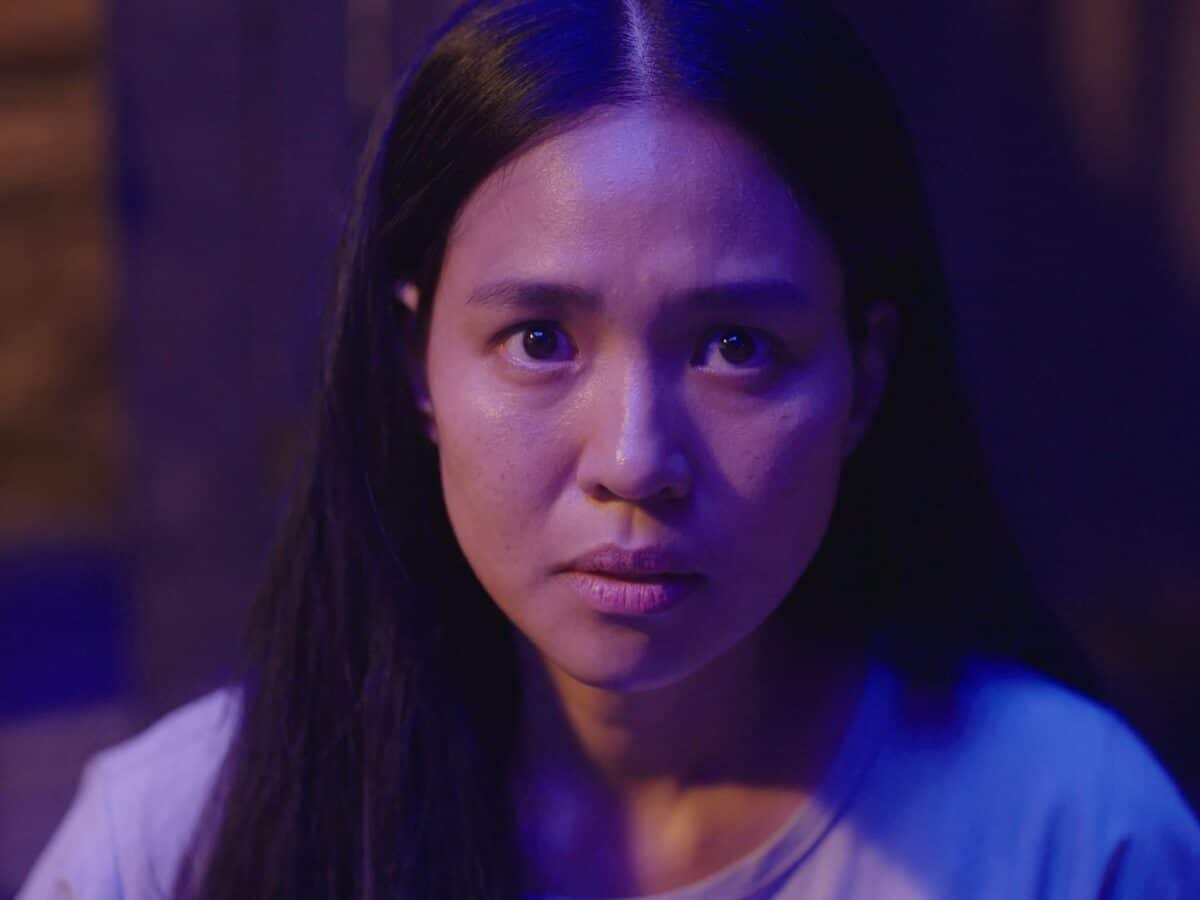
Aicelle Santos in a scene from MMFF 2024 entry “Isang Himala.” Image: Courtesy of CreaZion Studios
The core of the 2024 Metro Manila Film Festival (MMFF) entry “Isang Himala” is blind faith. It has since been told in the Ishmael Bernal-helmed “Himala” in 1982 and the musical brought together by the original screenwriter and National Artist Ricky Lee, Vincent de Jesus, and Ed Lacson Jr. Carrying the weight of its predecessors, it manages to marry film and theater while reinventing its timeless story for a modern audience.
Set in the fictional Cupang, “Isang Himala” puts the spotlight on Elsa (Aicelle Santos) and how seeing an alleged Marian apparition became her tool to becoming the worshipped faith healer of the barren town. Also part of Elsa’s story are Aling Saling (Bituin Escalante), Chayong (Neomi Gonzales), Orly (David Ezra), Nimia (Kakki Teodoro), Priest (Floyd Tena), Pilo (Vic Robinson), and Sepa (Joann Co).
From the beginning, it was clear that the ensemble was the strongest point of the film. The 1982 film highlights silences to capture the mystery of Elsa, and how her supposed grandeur affected the lives of the residents with her. The musical film lets go of the silence in the Ishmael Bernal-helmed movie, using musical numbers and intentional expressions of the characters to add more weight to their respective stories. What was supposed to be a reluctant turn to faith healing turned out to be a coy request by Elsa toward Orly to capture her in hopes of making the residents of Cupang believe that she is, indeed, the town’s miracle.
Aicelle Santos in a scene from MMFF 2024 entry “Isang Himala.” Image: Courtesy of CreaZion Studios
Other noticeable changes in the film were shifting the desert setting of the 1982 film into a mining town, and aging Elsa to 29 years old (as Nora Aunor’s Elsa was 24 years old). Although these changes seem small, it was able to add more meaning to how Cupang’s residents were the suspects and victims of the town’s impoverished state. At the same time, making Elsa older makes sense since a person having more sense of their reality would have the innate ability to turn the town upside down.
From the beginning, it was clear that the female characters would carry the film’s emotional weight. Escalante, Teodoro, and Gonzales were the perfect foils for Santos’ supposed untouchable nature. The female actresses were able to translate their commanding presence as theater actresses into gut-wrenching characters suited for the big screen.
Classic story and talented ensemble aside, it was also the close-ups and angles of cinematographer Carlo Mendoza that played a crucial role in capturing how Elsa was able to manipulate Cupang into turning her into an “immortal” being. It also allowed the audience to feel the weight of the town’s blind faith without straying from the spectacle that theater is known for.
But while the ensemble cast, cinematography, and attention to detail were the strongest points of “Isang Himala,” it suffers from editing choices in certain scenes that pin the message to its viewers, instead of presenting it while allowing the audience to interpret its core on their own. Some moments also felt dragging as musical numbers would be extended to let the story move forward, instead of adding a dialogue or silence, or knowing the right time to stop a certain scene.
Aicelle Santos in a scene from MMFF 2024 entry “Isang Himala.” Image: Courtesy of CreaZion Studios
It’s understandable to struggle with the pacing as “Isang Himala” follows a two-hour and 25 minutes-runtime. But there’s a difference between imparting a powerful message through varying lengths and piecing together a string of performances to drive a message home.
Still, “Isang Himala” is an impressive film that was able to expand into the character’s backstories without sacrificing its core. Diokno carries a lot of pressure to create a formidable body of work that pays tribute to the original material and maintains a distinct tone. Filmgoers don’t have to watch the 1982 film and musical to understand its story (but they should).
It remains one of the strongest entries in this year’s stacked lineup, as it was able to separate itself from its predecessors while establishing itself as a film that holds more weight. Will it capture the hearts of the public? Hopefully, it will.